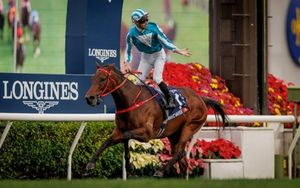Pope Francis, at 88 years old, is facing significant health challenges after being hospitalized with bilateral pneumonia, leading to renewed discussions about his potential resignation. Founded on his prolonged hospitalization, especially after undergoing various respiratory issues, the pontiff confirmed his preparedness for retirement if medical conditions severely affect his ability to serve.
The Pope was admitted to Gemelli Hospital in Rome on February 14, 2025, after experiencing health deteriorations. Initially diagnosed with bronchitis, his condition escalated to polimicrobial infections, culminating with the pneumonia diagnosis reported on February 18. This recent development has cast doubt on his ability to fulfill the demanding role of the papacy.
Medical reports indicate slight improvements, including stabilization of his condition, but specialists caution against complacency. Sergio Alfieri from Gemelli Hospital, who is part of the Pope’s medical team, emphasized, "The Pope is tough. How many other people would endure so many infections with his level of commitments?" Despite being apyretic (fever-free) and having stable bodily functions, the Pope remains under vigilant medical supervision. The Vatican’s public communications have been cautiously optimistic, informing the public about the minor improvements.
While the current state of the Pope allows for some hope, his health issues amplify earlier discussions about succession. Such discussions intensified after revelations emerged detailing the Pope’s signed resignation letter—prepared nearly ten years ago—held by Cardinal Pietro Parolin, the Secretary of State. During a candid moment with the Spanish newspaper ABC back in 2022, Pope Francis disclosed this information, stating, "I signed the resignation and said to him: ‘in case of medical impediment or something like this, here is my resignation. You have it.'" This disclosure has created ripples of speculation, reigniting the dialogue surrounding his potential resignation amid his health struggles.
Historical precedents exist with the stunning resignation of Pope Benedict XVI, who paved the way for such actions; many now wonder if Francis will choose to follow suit. Although the Pope has occasionally hinted at his desire to serve for as long as his health allows, including his sentiments of “governing with the head and not the legs,” the fragility of his current condition brings these discussions to the fore once again.
Internally, the reaction among Catholic leaders varies. Cardinal Jean-Marc Aveline of France remarked, "I have absolute confidence in the lucidity of the Pope. He is free and... if he thinks it is best for the Church, he will act accordingly." Meanwhile, others, like Cardinal Gianfranco Ravasi, noted the Pope could renounce if facing significant difficulties performing his duties. These reflections highlight the weight of leadership decisions and their impacts on the Catholic Church globally.
Meanwhile, misinformation and unfounded rumors about the Pope's health have proliferated on social media, with reports of his death circulating widely, accompanied by claims of credible funeral arrangements. Such conspiracy theories reveal the polarized sentiments surrounding his papacy and the broader manipulations within narratives about Church leadership.
The health crisis of Pope Francis reflects broader internal pressures within the Church, particularly stemming from factions resistant to his reformative initiatives. Amid these, there has been increasing demand from conservative voices, particularly from the United States, seeking radical changes within Church governance, hoping to "turn the page" on Bergoglio's papacy. Yet, amid uncertainties, support for the Pope remains abundant, with fervent prayers and messages of recovery pouring from the faithful, including heartfelt gestures on his social media platforms.
The situation continues to evolve, with speculation surrounding whether he might step down depending on how resurgent health complications stabilize or worsen. His recent hospital turn has undeniably illuminated his legacy and the significant role he has played within the Church for over a decade now. With such unexpected turns, the Catholic Church must brace itself for potential transitions, cultivating resilience and adaptation during this uncertain chapter.
Gathering the hope for health alongside the reflections on leadership, the future of the papacy looms as the world-looks on, awaiting potential decisions and the pivotal shifts such decisions might bring to the foundation of the Vatican.



